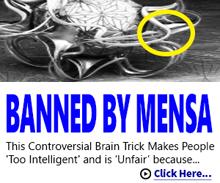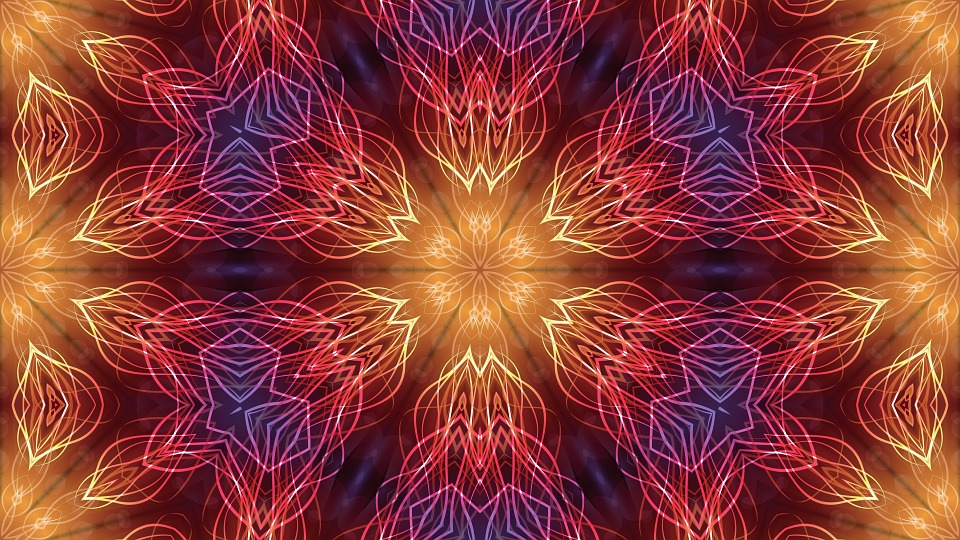Researchers from Imperial College London have become the first team to visualize the effects of LSD on the brain.
A new study published in Proceedings of the National Academy of Sciences (PNAS) has shown what exactly happens in the human brain during visual hallucinations caused by LSD (Lysergic acid diethylamide). The researchers gave doses of LSD, also known as acid, to 20 volunteers and then used brain scanning techniques to visualize how the chemical alters the brain.
Of particular interest is the discovery that during an LSD trip the volunteers brains were contributing to visual processing in a new and unique way. “We observed brain changes under LSD that suggested our volunteers were ‘seeing with their eyes shut’ – albeit they were seeing things from their imagination rather than from the outside world,” said Dr Robin Carhart-Harris, from the Department of Medicine at Imperial. “We saw that many more areas of the brain than normal were contributing to visual processing under LSD – even though the volunteers’ eyes were closed. Furthermore, the size of this effect correlated with volunteers’ ratings of complex, dreamlike visions.”
Carhart-Harris explains that typically independent networks within the brain perform separate specialized tasks, but under the influence of LSD there is no separation between these networks and instead, a more unified brain.
“Our results suggest that this effect underlies the profound altered state of consciousness that people often describe during an LSD experience. It is also related to what people sometimes call ‘ego-dissolution’, which means the normal sense of self is broken down and replaced by a sense of reconnection with themselves, others and the natural world,” Carhart-Harris explained. What he described is also sometimes known as an “ego-death.”
The researchers also discovered that LSD seems to reset users’ brains to a state not unlike an infant. “In many ways, the brain in the LSD state resembles the state our brains were in when we were infants: free and unconstrained. This also makes sense when we consider the hyper-emotional and imaginative nature of an infant’s mind.”
Carhart-Harris was also involved in a 2010 study which investigated the effects of psilocybin mushrooms in treating anxiety, depression and PTSD. Carhart-Harris managed the Imperial College brain imaging study for the last six years, examining the brain activity of individuals suffering from depression during psilocybin sessions. In order to understand how psilocybin creates its effects and how those effects alter brain activity the team worked with specialists in the mathematical modeling of brain networks.
“When we looked at our initial data with psilocybin we saw very clear overlaps between how psilocybin was working in the brain and how other effective depression treatments were working in the brain,” Carhart-Harris said.
Carhart-Harris and his team discovered that under a dose of psilocybin the brain’s “default mode network,” connected to “high-level thinking” in humans, became chaotic and disorganized, specifically in the area of the brain which is believed to be linked to sense of self. Carhart-Harris spoke about an increased level of entropy in the more primitive networks of the brain, indicating a higher number of potential brain states available to volunteers while under psilocybin.
Another study done in 2006 also confirmed the benefits of so-called psychedelics. Roland Griffiths, a psychopharmacologist at Johns Hopkins University School of Medicine, and a team of researchers published a groundbreaking article in the Journal of Psychopharmacology, “Psilocybin Can Occasion Mystical-Type Experiences Having Substantial and Sustained Personal Meaning and Spiritual Significance.” The paper concludes that, “When administered under supportive conditions, psilocybin occasioned experiences similar to spontaneously occurring mystical experiences.” Two-thirds of those involved in the sessions described them as being among the most meaningful experiences of their lives.
 In a 2014 study Griffiths’s lab looked at the the possibility of treating nicotine addiction with psilocybin, the psychedelic component of “magic mushrooms.” Participants had three psilocybin sessions and three cognitive-behavioral therapy sessions to diminish cravings. Eighty percent of those who received the psilocybin treatments abstained from nicotine for over six months, while less than 7 percent of those who received traditional nicotine-replacement therapy were successful for more than six months. Those who reported a “mystical experience” had the most success in breaking their addiction.
In a 2014 study Griffiths’s lab looked at the the possibility of treating nicotine addiction with psilocybin, the psychedelic component of “magic mushrooms.” Participants had three psilocybin sessions and three cognitive-behavioral therapy sessions to diminish cravings. Eighty percent of those who received the psilocybin treatments abstained from nicotine for over six months, while less than 7 percent of those who received traditional nicotine-replacement therapy were successful for more than six months. Those who reported a “mystical experience” had the most success in breaking their addiction.
What does this new research tell us about the potential of these substances? Will our society evolve to the point of allowing individuals to experience true cognitive liberty, including the right to ingest psychedelics for recreational or medicinal purposes? If we are not free to alter our own minds, especially with tools that possess such potential, are we really free?
Derrick Broze is an investigative journalist and liberty activist. He is the Lead Investigative Reporter for ActivistPost.com and the founder of the TheConsciousResistance.com. Follow him on Twitter.
Derrick is available for interviews.
This article may be freely reposted in part or in full with author attribution and source link.


If you’ve ever done acid you don’t need this study and you should have already concluded that you are NOT free.
That’s nothing! Researchers at The University of Florida discovered that psilocybin can not only heal damaged brain cells, but actually grow brain cells that never existed! For that reason we can expect the completely harmless hallucinogen to remain a controlled substance, so Big Pharma can make patients pay out the nose for a naturally occurring medicinal by being required to buy it from Big Pharma.